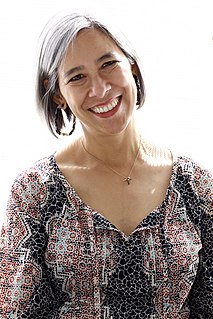A Quote by Elliott Colla
A high-ranking Syrian official in DC laughed when he heard I was reading Michel Aflaq and writing this book. He said, "Let me tell you something. There are no Baathists, no one believes this stuff, this is stuff you read in school because it's assigned to you. Maybe someone believed it, but no one really believes it." And I thought that was really interesting to hear, because the ideology of Baathism was presented so often to Americans as the core of what's wrong.
Related Quotes
The more I've reflected on that and asked Iraqi friends, the more I realize that the corruption in Iraq has nothing to do with ideas - it has to do with the regime and institutional structures and power. There's no core to what Michel Aflaq has to say that results in this. That was a key to looking at Michel Aflaq as a sideshow. He's the intellectual father of an ideology that no one probably ever believed in. At that point I began to appreciate him in a funny way.
On one occasion I got this really bizarre horoscope thing from someone. It was a full-on zodiac reading, charting and intersecting all this stuff. It was over 20 pages long and said we're destined to be together. That was totally bizarre. I don't really believe in that stuff anyway, although I do believe in Karma because it's already bitten me on the ass so many times.
A writer writes a book. People read it. You don't know what they're reading, really. You read a review and think, "That is so inaccurate. You can't have been reading my book with any kind of attention, because that is all wrong, that's even the wrong name you're including there." But these reviewers have been diminished in importance, the work is so little respected. If you're reviewed by a real critic, by James Wood or Louis Menand, then you get something that is informed, interesting, and highly articulate. But the average review doesn't have that kind of depth anymore.
Someone told me something recently about Sarah Palin, someone I trusted in the book business. They said, "I worked with Palin. She did an event at my bookstore, and she was really, really nice, and even more beautiful in person." I didn't want to hear that. I wanted to hear that she was awful and hideous-looking. But I thought, I have to listen to that. I have to hear that. I don't want to be the one who is going to deny anything complimentary said about somebody just because I disagree with that person.
It's pathetic, but I don't really remember my first time reading 'The Great Gatsby.' I must have read it in high school. I'm pretty sure I remember it being assigned, and I generally did the reading. But I don't remember having a reaction to the book, even though I loved literature, and other works made a lasting impression on me at that age.
I always think it's interesting to switch genres, because if I read a script and I know exactly how to manifest a story, I don't really want to do it anymore, because I've already done it in my head. It becomes less interesting. If I read something that's challenging, I get really passionate and usually fall in love with it, because I feel I need to do it. I need to tell the story; I need to find a way to make it happen.
Yes, but another writer I read in high school who just knocked me out was Theodore Dreiser. I read An American Tragedy all in one weekend and couldn't put it down - I locked myself in my room. Now that was antithetical to every other book I was reading at the time because Dreiser really had no style, but it was powerful.
All this stuff you heard about America not wanting to fight, wanting to stay out of the war, is a lot of horse dung. Americans, traditionally, love to fight. All real Americans love the sting of battle. Americans play to win all the time. I wouldn't give a hoot in hell for a man who lost and laughed. That's why Americans have never lost - and will never lose - a war, because the very thought of losing is hateful to Americans.
My writing is of a very different kind from anything I've heard about. All this mythological material is out there, a big gathering of stuff, and I have been reading it for some forty- or fifty-odd years. There are various ways of handling that. The most common is to put the material together and publish a scholarly book about it. But when I'm writing, I try to get a sense of an experiential relationship to the material. In fact, I can't write unless that happens ... I don't write unless the stuff is really working on me, and my selection of material depends on what works.
I didn't really like reading much before I did 'The Golden Compass'. But then my teacher told me to read it. And I thought, 'Oh God, I'm going to have to read a whole book by myself!' It's not that I couldn't read, it's just that I didn't really like books very much. But the book that she lent me I really enjoyed.
The Savage interrupted him. "But isn't it natural to feel there's a God?"
"You might as well ask if it's natural to do up one's trousers with zippers," said the Controller sarcastically. "You remind me of another of those old fellows called Bradley. He defined philosophy as the finding of bad reason for what one believes by instinct. As if one believed anything by instinct! One believes things because one has been conditioned to believe them. Finding bad reasons for what one believes for other bad reasons – that's philosophy. People believe in God because they've been conditioned to."
































